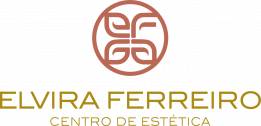Building upon the foundational idea that How Mythology Shapes Modern Symbols Like Le Zeus, it becomes clear that mythology’s influence extends far beyond ancient deities and legendary heroes. Today, mythology continues to serve as a vital thread weaving through the fabric of cultural identity, shaping narratives, symbols, and societal values in dynamic ways.
Mythology as a Foundation of National and Cultural Narratives
Ancient myths are embedded deeply within the histories and stories of nations, often serving as the bedrock of cultural identity. For example, Greek mythology not only shaped the iconography of gods like Zeus but also influenced the cultural self-perception of Greece, echoing through national symbols, literature, and art. Similarly, Norse myths underpin the collective identity of Scandinavian countries, inspiring everything from modern literature to national emblems.
In contemporary contexts, these mythological narratives are often reinterpreted or adapted to resonate with current societal values. For instance, modern storytelling may recast mythic figures as symbols of resilience or innovation. This transformation allows cultural identities to evolve while maintaining a link to their historical mythic roots, ensuring their relevance in a rapidly changing world.
Mythological Archetypes and Their Modern Reinterpretations
- The hero archetype persists in modern media, exemplified by characters like Marvel’s Thor or Harry Potter, echoing ancient heroic myths.
- God-like figures are reimagined in contemporary branding and entertainment, reflecting societal aspirations and fears.
- Villains and antiheroes often embody mythic chaos or moral ambiguity, mirroring ancient narratives of conflict and moral lessons.
These reinterpretations are not mere repetitions but nuanced reflections of societal values. For example, the figure of Prometheus, once a symbol of defiance, now inspires narratives around innovation and resistance in the face of authority. Such shifts demonstrate how mythic archetypes are living symbols, constantly evolving to mirror contemporary concerns and ideals.
The Role of Mythology in Shaping Moral and Ethical Frameworks
Mythological stories have historically served as moral lessons, teaching virtues like bravery, justice, and humility. The myth of Hercules, for instance, emphasizes strength combined with moral virtue, shaping cultural expectations of heroism. In modern times, these stories are adapted to contemporary ethical debates, such as the importance of environmental stewardship or social justice, often through allegorical reinterpretations.
This influence extends into education, governance, and social practices. For example, national holidays or public monuments often commemorate mythic figures or stories, reinforcing shared moral values. As societal norms evolve, so do these mythic narratives, which are continually reshaped to support contemporary ethical frameworks.
Mythology and Identity Construction in Minority and Marginalized Groups
- Groups often reclaim and adapt mythological narratives to forge a unique cultural identity, challenging dominant narratives.
- Mythology becomes a tool of resistance, fostering pride and solidarity among marginalized communities.
- Examples include Indigenous stories adapted into contemporary art or diaspora communities creating myth-inspired symbols to preserve heritage.
For instance, Native American communities often reinterpret mythic figures to assert sovereignty and cultural resilience. Similarly, African diaspora groups incorporate mythic motifs into cultural expressions, reinforcing a sense of continuity and resistance against erasure. This process highlights the transformative power of mythology in constructing and maintaining identity amid social upheaval.
Digital Age and the Rebirth of Mythology
The advent of social media and digital storytelling platforms has revitalized mythological themes, enabling new forms of myth creation. Online communities generate modern myths through memes, viral stories, and fan fiction, allowing mythic motifs to evolve rapidly in digital spaces.
This digital rebirth preserves ancient myths by adapting them to contemporary formats, ensuring their relevance for younger generations. For example, the myth of the hero’s journey is frequently echoed in video games and movies, while online memes often parody or reimagine mythic symbols, blending tradition with modern humor.
Mythology’s Influence on Contemporary Symbols Beyond Deities
| Symbol Type | Mythological Motifs | Contemporary Examples |
|---|---|---|
| Logos & Branding | Zeus, Athena, Thor, Odin | Tesla logo (lightning bolt inspired by Zeus), Marvel’s Thor |
| Fashion & Design | Mythic motifs in jewelry, clothing patterns | Ancient Greek-inspired jewelry lines, myth-themed fashion collections |
| Architecture | Temples, monuments | Modern buildings with myth-inspired designs, such as neoclassical facades |
The psychological appeal of myth-inspired symbols lies in their power to evoke universal themes—courage, wisdom, chaos—that resonate deeply across cultures. This enduring symbolism demonstrates how mythic motifs have evolved from ancient deities into modern icons, shaping perceptions and identities in subtle yet profound ways.
Bridging to the Parent Theme: Reaffirming Mythology’s Role in Modern Symbols
As discussed throughout this exploration, the ongoing evolution of myth in cultural identity directly influences how symbols like Le Zeus are conceived and utilized today. Contemporary reinterpretations of myth continue to inspire new visual and conceptual representations, ensuring that these ancient stories remain relevant in modern society.
«Mythology is not merely a relic of the past but a living dialogue between ancient stories and modern expressions, shaping our symbols, values, and identities.» — Cultural Studies Expert
Through this continuous dialogue, mythological themes adapt and flourish, reaffirming their central role in shaping modern cultural symbols and collective identities. The dynamic between ancient legends and contemporary culture ensures that myth remains a vital, evolving force in the narrative of human society.
